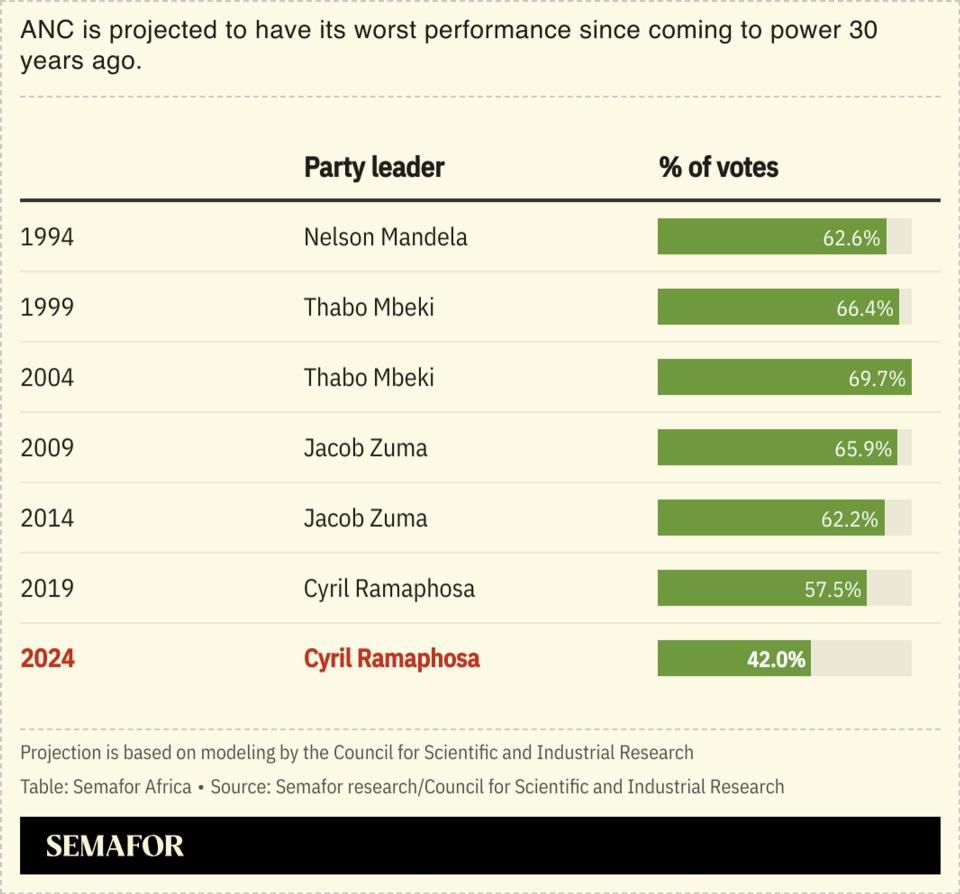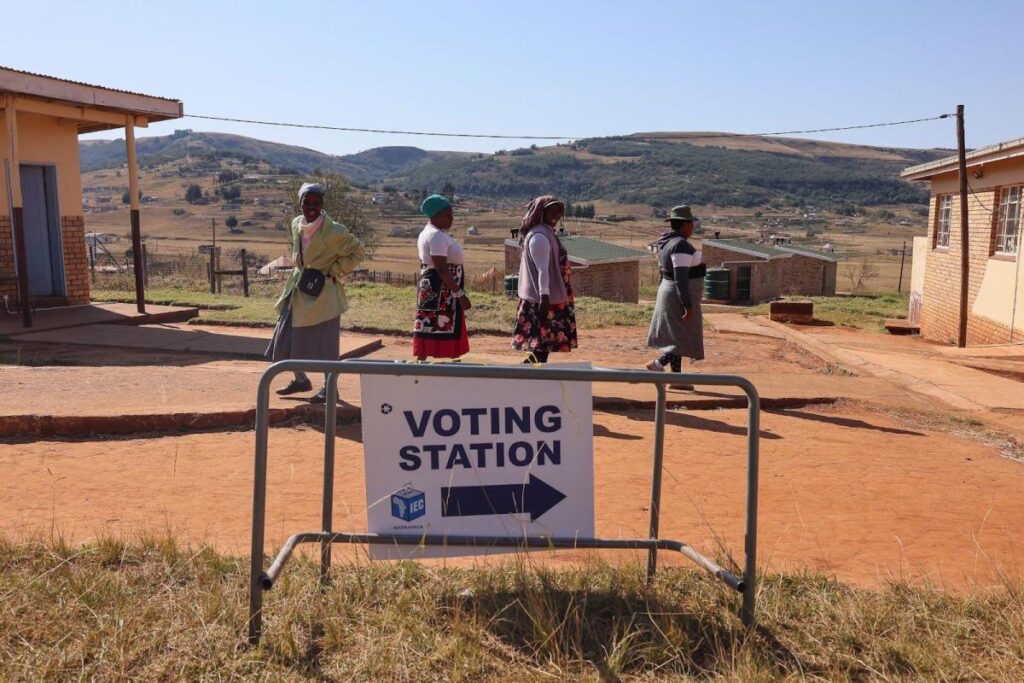
The news
JOHANNESBURG – The African National Congress in South Africa appears to be losing its parliamentary majority for the first time since it came to power after the end of apartheid thirty years ago, according to forecasts based on early election results.
Polling stations for Wednesday’s elections closed at 9 p.m. On Thursday, with results from 13.9% of polling stations, Electoral Commission data showed the ANC had secured 42.6% of the vote. The main opposition party, the Democratic Alliance, had 25.8% and the left-wing Economic Freedom Fighters (EFF) 8.5%.
Based on initial results, the Council for Scientific and Industrial Research, which provides forecasts to state broadcaster SABC, said the ANC is expected to have about 42% of the vote when the count is completed.
If it fails to secure 50% of the 400 seats in the National Assembly, the ANC – still expected to be the largest party – would be forced to form a coalition government with smaller parties.


Knowing more
According to the constitution, the new parliament must convene within fourteen days of the announcement of the final results. And the first act of parliament must be the election of the country’s president.
It means there will be up to two weeks of negotiations to form a government if the ruling party does not win a parliamentary majority.
The ANC has won every election since 1994, when Nelson Mandela brought the party to power after the end of the apartheid regime.
But the party has seen its support and share of the vote decline over the past three decades. In 1994 it won 62.5% of the National Assembly seats. This was secured at the last election, in 2019 57.5% of the votes.


The elections were fought over the key issues of the economy, power and crime.
The ANC has faced stiff competition from dozens of rival parties, most notably the far-left uMkhonto weSizwe Party (MK Party) led by former president Jacob Zuma, and the Economic Freedom Fighters, a Marxist party led by a former ANC youth leader who called for the nationalization of mines and land expropriation.









